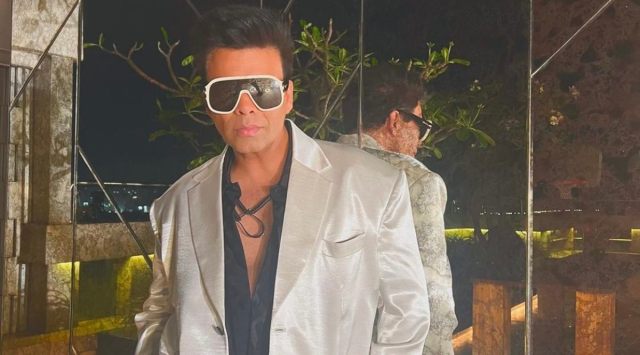
Even in 2001 — when he was barely a teenager — my friend hated Karan Johar and Shah Rukh Khan. Back then, the issues he had with the young director were not the same as those he has today: How Johar’s films are cliche, a sort of cultural junk food that makes it all the more difficult to appreciate things with more depth and subtlety. And, of course, the fact he is responsible for the revival and spread of multiple regressive notions, from Karva Chauth to blatant consumerism, from the untethered nationalism of the NRI to the celebration of the patriarchal notions of authority within families. In 2001, he just hated Johar-Shah Rukh because they made soppy films that had no action. They weren’t the right kind — unlike Sunny Deol or Salman Khan flicks — of mass entertainers. And all of them basically had the Betty-Veronica Archie comics dichotomy.
Karan Johar just turned 50. Apart from some thoughtful and sensitive – though not groundbreaking by any measure — short films in anthologies like Bombay Talkies, it is easy to argue that he has simply not evolved as a filmmaker in almost 25 years. The “ek tarfa pyaar” in Ae Dil Hai Mushkil (2016) is, in essence, the same as Anjali’s pining for Rahul in Kuch Kuch Hota Hai (1998). As a director, he has not broken the mould with visual or technical creativity. He has worked, more often than not, with stars that can be seen as carrying the film. These criticisms are well taken. But they elide exactly what makes a Johar film work – skill and honesty.
The melodrama is a legitimate form of entertainment and pulling it off requires skill. Johar, more than a director, is a great writer. He can manipulate the audience – make no mistake, every filmmaker tries to – into laughing, crying and perhaps even cringe-worthy feelings of soppy patriotism (remember the kid in K3G singing the national anthem in the worst angrez accent?). He knows how a plot turns and he manages to place archetypes (unrequited love, filial conflict, romantic triangles) and place them in the consumerist ethic that has come to define aspiration in post-liberalisation India.
Johar is criticised, as one colleague put it, “for the films he has not made”. In his entertainers, the conflict is limited to emotion, not to the circumstances of his characters. There is never a battle of ideas, only of feelings. But that is not his aim, those are not the stories he wants to tell. In the ones he does, there is an honesty of purpose. Unlike, say, what is done in a film like Luck By Chance (directed by Zoya Akhtar), he is a Bollywood insider who does not cynically decry the industry in which he grew up. Most important of all, he appears to believe in his characters, and while they may be a bit over-the-top, he is genuine in the way writes of their joy and pathos.
Johar, the director, is in his own way as successful as Johar the talk-show host. He doesn’t pretend to be a journalist or a chronicler of conflict and suffering in either role. And in both formats, his content is the guilty pleasure for many a “serious” viewer. Even my friend, the Johar-hater, was weeping during the climax of K3G. “Yaar, Amitabh did love Shah Rukh”. The characters did not matter. But even he couldn’t escape the skill of Johar’s cinematic manipulation.
aakash.joshi@expressindia.com